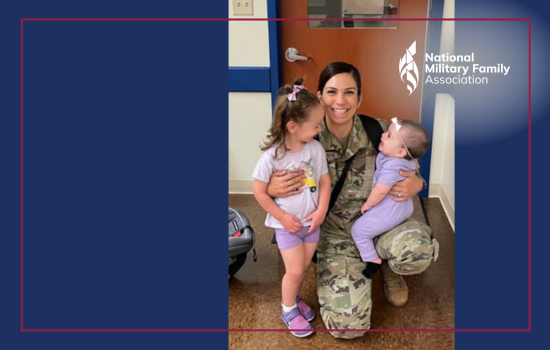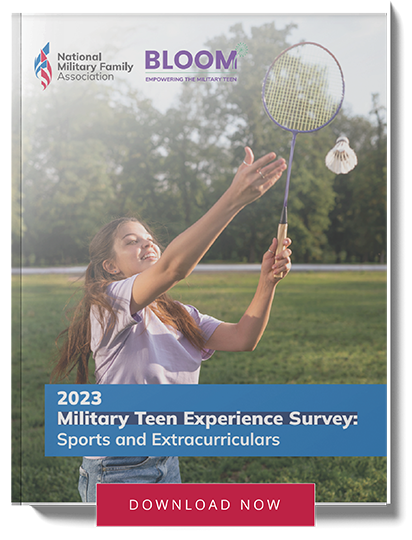House Bill Boosts Spouse Employment and Maternal Health Support

Whether you’re new to military family life or a seasoned military spouse, one thing remains true: military life can present unique challenges, and that’s why thoughtful legislation matters. A few weeks ago, the House Appropriations Committee approved the FY2026 Military Construction, Veterans’ Affairs, and Related Agencies appropriations bill and released its report.
A major part of this bill includes significant funding cuts to VA staffing that would correspond to the reduction in force the VA has already begun to implement, sparking concerns over Veterans’ access to care. While these significant cuts are concerning and have made the news, there are other lesser-known directions in the Committee’s report to be aware of, with encouraging language aimed at supporting the everyday realities military families face.
Improving Military Spouse Employment Data
One initiative that stands out is focused on military spouse employment. We all know how difficult it can be to build a career while balancing PCS moves, childcare gaps, and life in uniformed service. The Committee is instructing the Department of Defense to work with the Bureau of Labor Statistics to better understand military spouse employment trends using existing federal surveys.
This may sound like a small step, but better data means better support for military spouses, and currently our best measures do not capture the full scale of military spouse employment and underemployment. Understanding what jobs spouses hold, where they struggle, and how their careers are impacted can help shape programs that make real improvements in employment opportunities across the board.
At NMFA, we’ve consistently advocated for better employment data and workforce development programs that reflect the real challenges military spouses face. We believe this directive is a crucial first step toward more informed, effective policy solutions.
Perinatal Mental Health Support
Another area where the report shows promise is maternal health, something many military families navigate during their time in service. If you’ve ever been pregnant while stationed far from extended family or experienced a PCS during a pregnancy, you know how important good care is, and how fragile that support system can sometimes feel.
This new recommendation encourages the Defense Health Agency to monitor perinatal mental health screenings more consistently. These screenings help detect mental health conditions during and after pregnancy, which is key to preventing issues from going unnoticed. The report also calls for more education so that TRICARE beneficiaries and providers alike understand the importance of these checkups. For new and expecting parents, that’s reassuring. Sometimes just knowing that systems are being checked and improved gives military families peace of mind.
NMFA strongly supports these efforts. We know how critical it is for military families to access comprehensive perinatal care and mental health support, no matter where they’re stationed.
Addressing the Maternal Health Care Worker Shortage
Additionally, the report instructs the Assistant Secretary of Defense for Health Affairs to support programs to address the shortage of maternal health care providers and ensure a strong pipeline of OB/GYNs in TRICARE. By recommending the expansion of scholarships in maternal health through the Health Professions Scholarship Program, the report addresses the ongoing shortage of specialized providers in military facilities. That could mean shorter wait times, more consistent care, and better outcomes for military moms and their babies.
NMFA has long pushed for increased access to OB/GYNs and women’s health providers within the military health system. Expanding the provider pipeline is a meaningful step toward better, more timely care for military-connected families.
Maternal Care During Emergencies
Lastly, the bill report language highlights the importance of maternal care for military spouses during emergencies—from natural disasters to public health crises. The Committee instructs the Department of Defense to bring together health experts, community groups, and even patient voices to improve emergency preparedness for maternal and child health needs. It also encourages the routine creation of resources that families and providers can turn to when things get chaotic. Because when emergencies hit, knowing that care for military moms and babies is a priority ensures that warfighters are focused on their mission, knowing their families are taken care of. Military family health care is a readiness issue, especially during emergencies.
NMFA fully supports this initiative. We’ve seen firsthand how preparedness gaps during emergencies can put military families at risk. Planning for maternal and pediatric care in crisis situations isn’t just compassionate, it’s critical to operational readiness.
The Committee’s directives reflect a growing awareness of what military families actually need. From job support to maternity care and mental health resources, this report shows progress made possible by the military spouses who advocate on behalf of military families. Members of Congress depend upon their constituents, including military spouses, to present the unique challenges they face as part of military life.
At NMFA, we’re committed to advocating for policies that reflect the lived experiences of military families. These directives are a step in the right direction, and we’ll be monitoring how they take shape over time.





